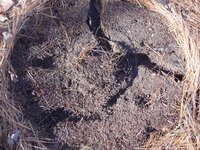FreeBirdTim
Silver Member
- Sep 24, 2013
- 3,794
- 6,784
- 🥇 Banner finds
- 1
- Detector(s) used
- Garrett AT Pro
- Primary Interest:
- All Treasure Hunting
So you are comparing coins in earth to ships in the ocean? Thats the weakest defense for an idea I have seen.
I said to read the part about elephants, not about the ocean. You're just arguing for the sake of arguing now.






